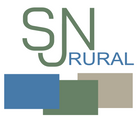Securing grant funding is a significant achievement, but the work doesn't stop there. Grant reporting is a crucial step in the process, ensuring accountability and demonstrating the impact of your project. Effective grant reporting not only satisfies funding requirements but also builds trust with funders and strengthens your organisation's reputation. This blog post will guide you through the essentials of grant reporting and provide 10 top tips for easy grant management.
Why is Grant Reporting Important?
Grant reporting is essential for several key reasons. Firstly, it ensures accountability, demonstrating that you've utilised grant funds as intended and achieved the agreed-upon outcomes. It fosters transparency, building trust with funders and the community by providing clear and accurate information about your project's progress and impact.
Relationship building with funding bodies and managers is strengthened through timely and thorough reports, which increase the likelihood of securing future funding. The reporting also enables learning and improvement, allowing you to reflect on your project's successes and challenges and identify areas for future enhancement. Finally, grant reports facilitate data collection, providing valuable information that can be used to demonstrate the impact of your projects to future funders.
Key Components of a Grant Report:
- Financial Reporting: Detailed accounting of how the grant funds were spent, including receipts and invoices.
- Progress Reporting: A summary of the project's activities, achievements, and challenges.
- Outcomes Reporting: Evidence of the project's impact, including quantitative and qualitative data.
- Evaluation: An assessment of the project's effectiveness and lessons learned.
IT IS IMPORTANT THAT YOU ADDRESS ALL THE REQUIREMENTS OF A GRANT ACQUITTAL!
10 Top Tips for Easy Grant Management and Reporting:
-
Establish a System from the Start
Before you even begin your project, set up a system for tracking expenses, activities, and outcomes. Use spreadsheets, project management software, or other tools to keep everything organised. -
Read and Understand the Grant Agreement
Carefully review the reporting requirements and deadlines outlined in your grant agreement. Put key due dates for reporting in your diary so you wont forget about them! -
Maintain Accurate Records
Keep detailed records of all expenses, including receipts, invoices, and timesheets. Document all project activities, including dates, locations, and participants. -
Track Outcomes Regularly
Don't wait until the end of the project to collect data. Track outcomes throughout the project to ensure you have sufficient evidence for your report. -
Use a Consistent Format
Develop a template for your grant reports to ensure consistency and efficiency, if the funding body does not have their own templates for you to use. -
Communicate Regularly with Funders
Keep funders informed of your progress and any challenges you encounter. Communicate with them early if you have any queries or hiccups - they are usually very good at helping out with a solution! -
Gather Testimonials and Stories
Collect qualitative data, such as testimonials and stories from participants, to demonstrate the impact of your project. -
Use Visuals
Include charts, graphs, and photos in your reports to make them more engaging and easier to understand. -
Proofread Carefully
Ensure your reports are free of errors and presented professionally. -
Submit Reports on Time
Adhere to the reporting deadlines outlined in your grant agreement.
Demonstrating Impact:
- Use specific and measurable outcomes to demonstrate the impact of your project.
- Collect both quantitative data (e.g., numbers, statistics) and qualitative data (e.g., stories, testimonials).
- Clearly link your project's activities to the outcomes achieved.
Building Strong Relationships:
- Treat grant reporting as an opportunity to build a strong relationship with your funder.
- Be transparent and honest in your reporting.
- Acknowledge the funder's support and thank them for their investment.
By following these tips and best practices, you can ensure that your grant reports are accurate, informative, and submitted on time. This will not only satisfy funding requirements but also demonstrate the value of your work and strengthen your organisation's reputation for the next lot of funding to be offered.

